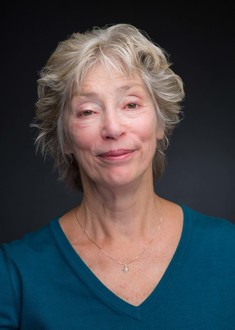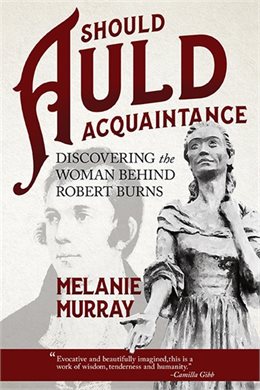 I've been finishing another draft of the new novel and haven't had a chance for a Storybrain interview for a while--but here comes Melanie Murray with her own new book on the 18th century, Should Auld Acquaintance: Discovering the Woman Behind Robert Burns. It's a thoughtful and impassioned reconstruction of the life of Jean Armour, about whom I knew nothing. Melanie has given Jean an uncannily vivid voice and form, and I'm glad to have this book (Camilla Gibb calls it "a work of wisdom, tenderness, and humanity"). I met Melanie in a hallway when we were both teaching at Okanagan University College (now UBC Okanagan), and she generously shared her Children's Lit notes with me when I had two weeks to prepare to run that course! She's a generous writer, too, as is clear in this book and in her first, For Your Tomorrow: The Way of an Unlikely Soldier, the powerful story of her nephew Jeff's life and death. Creative non-fiction is a tough genre, and despite only coming to it in the last few years, Melanie has it nailed. Here's what she said about writing her latest. Why Jean Armour? While I was in Scotland doing research for my first book, my interest in Robert Burns led me to the village of Mauchline in southeast Ayrshire where he met Jean Armour. There in the Burns House Museum, I sat in the small room where Jean and Robert had lived for a short time after they first married. I started thinking about Jean Armour, born and raised in the village, and wondered what it would have been like to be married to the philandering, impoverished poet. Then I visited the kirkyard and knelt by the grave of their four daughters who had died in early childhood and thought about the maternal grief Jean would have suffered with those losses. I wanted to know more about her. Over the next couple of years I read many biographies about Burns as well as his extensive collections of letters, poems, and songs, trying to piece together a picture of Jean from the fragments written about her. She had an incredible life. I knew she was a much more complex woman than the shadowy figure portrayed in literary history, so I wanted to give her a voice and bring her to life. How did you decide to combine non-fiction and fictionalizing of historical events? I struggled with finding the right form for the book. I knew it couldn’t be a standard biography. I had an outline of facts, but they didn’t tell Jean Armour’s story. It existed between the lines of the facts. So I traveled back to Scotland to follow her footsteps through the past. At each locale and at each stage of Jean’s life, I had an outline of details to work within. But these facts were like so many bones in a crypt—dry and lifeless. Immersing myself in the landscapes, towns and houses Jean inhabited, I carried on an ongoing conversation with her in my journal and discovered my connections with this eighteenth-century woman. I let Jean tell her own story, and fleshed out the skeleton of facts with the techniques of fiction as well as my research about the social history of the time and place.The hybrid form of the book gradually took shape—part memoir, part literary biography, part novelized nonfiction.To build a personality for this historical woman, to show the depth of her character and the realism of her experiences, I created scenes and probed her inner experience. At the same time, the book remains loyal to the facts of Jean Armour’s life. In All True, I struggled with how much dialect and old-timey language to use. How did you decide on that balance? That was definitely a concern for me as well. Using too much of the Scottish dialect would interfere with readability and alienate the reader. But I also wanted to be true to the setting through the dialogue and diction. So it was a compromise. I use Scottish words and phrases that can be understood within their context, enough to give a sense of the distinctive time and place. How did you know where your story would end? I'm especially curious about this with life-writing (death isn't the automatic answer. . . ). I reworked the ending a couple of times. I wanted the book to conclude at a point of discovery where readers might feel the same satisfaction that I think Jean, herself, would have experienced with a serendipitous confluence of events near the end her life. The book is musical, like Jean herself--do you have any favourite selections, or music you found inspiring when writing? Songs create a foundation for the book.Their mutual love of song brought Jean and Robert together and sustained them through the tumultuous events of their lives. I found a lot of inspiration in the songs that Burns wrote about Jean, particularly “Of ‘A the Airts the Winds Can Blow” which Burns called his “honeymoon song.” There’s a link on my website to Jean’s Playlist where you can listen to that song as well as many other fine renditions of the songs mentioned in the book: http://www.melaniemurray.ca/jean-armours-playlist.html. Should Auld Acquaintance has a very strong sense of place. Do you think you could have written it without actually seeing Jean's houses and landscapes? I couldn’t have been written the book in its present form without having taken that physical journey back to Scotland to follow Jean Armour’s footsteps. Actually sitting in the houses she’d inhabited allowed me to connect with her on a deeper level. Walking the same streets she’d walked gave me a powerful sense of the past since many buildings and streetscapes in Mauchline and Dumfries have changed little since the eighteenth century. It felt somewhat like time-travelling. What stays with you most, having completed the book? What a strong, resilient woman Jean Armour must have been. She rose from the ashes of her many losses and allowed the genius of Robert Burns to flourish. And, like so many of the faceless wives of famous men, she has never been acknowledged for her role in the great man’s achievements. I came to understand that Burns—tone deaf according to his first teacher—may never have produced his immense collection of songs without Jean, a natural soprano and the stabilizing force in his turbulent life.
2 Comments
My story "Witching" was the lucky winner of this year's CBC Literary Awards Short Fiction prize. Congratulations to the longlist and finalists, and many thanks to the judges. The CBC's As It Happens broadcast my reading last night (with plenty of vocal fry, thanks to ongoing germs). Hearing it aloud gave it a different spin for me.
I've heard from a few readers with fresh takes, too, including lots of sympathy for the story's speaker, though I'll admit I saw her as more problematic. I've been writing a few stories about contemporary life, like this one, but the frontier is still planted in my mind--follow-up to All True will be out in 2018, and I've been working on a new draft. And am very happy that the CBC prize includes time at the Banff Centre for the Arts, one of the world's best places. Will report. That's the cover line on the May issue of The Walrus, in which I have a new short story, "My Pleasure," about prawns, arson, etc. It's beautifully illustrated by Nicole Xu. I hope you like it.
One of my stories is now on the CBC Literary Awards shortlist (winner announced next week). It's called "Witching," and while I wrote it as a small escape from the eighteenth-century setting of my next book, it's still about love and war. I hope you enjoy.
I'm really happy to have two stories on the CBC Literary Awards Short Fiction Prize longlist this year, in wonderful company. You can read short excerpts from all 28 listed entries here. My two are set in contemporary life instead of on the frontier: as per the five-word descriptions CBC requested, "Soldier comes home, girlfriend flips"; and "Mother contemplates her Bad Seed." (Those are no "Baby shoes for sale, never worn," but Hemingway got six words . . .).
Here's part two of an interview with the Heartlands site. I'm deep into the next novel draft, so it's been good to think about All True again and how it started for me.
All True got a mention in the New York Times this week, in Philipp Meyer's By the Book interview. Nice to hear it's in good company on a great author's nightstand.
Very pleased to have been interviewed by Alex Joyner at the Heartlands site. He had questions about the importance of the land in All True, and about the difficulties of reconciliation--Daniel and Rebecca, Daniel and Black Fish, and the book's different cultures generally. Thank you!
|
ALIX HAWLEYI'm the author of My Name is a Knife, All True Not a Lie In It, and The Old Familiar. Archives
February 2021
Categories |

 RSS Feed
RSS Feed
